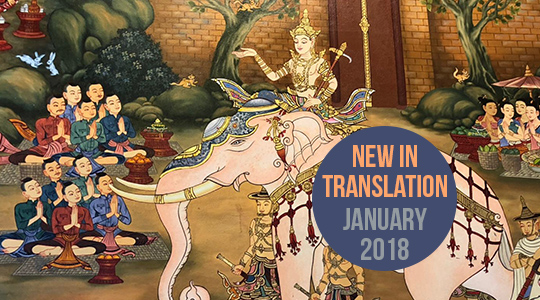Our writers bring you the latest literary news this week from Lebanon, where writers have been responding in the aftermath of the devastating port explosion. In Japan, literary journals have published essays centred upon literature and illness, responding to the ongoing pandemic. Romanian literature has been thriving in European literary initiatives and in Hong Kong, faced with a third wave of COVID-19, the city’s open mic nights and reading series have been taking place online. Read on to find out more!
MK Harb, Editor-at-Large, reporting from Lebanon
This week, as French President, Emmanuel Macron, began his Lebanon tour by meeting the iconic Lebanese diva, Fairuz, the literary world continued to grieve for Beirut in the aftermath of the explosion. Author Nasri Atallah, writing for GQ Magazine, recounts the cataclysmic impact of “Beirut’s Broken Heart.” Writer and translator Lina Mounzer and writer, Mirene Arsanios, exchanged a series of letters to each other for Lithub, talking about the anguish of distance and the pain of witnessing tragedy.Writer Reem Joudi also wrote an intimate essay exclusively for Asymptote, reflecting on her experience of the explosion and the uncertain future that Beirut now faces. Naji Bakhti, a young Lebanese writer, made his literary debut with Between Beirut and the Moon. Published on August 27 with Influx Press, the book is a sardonic coming of age story in post-civil-war Beirut (1975-1990). While Bakhti was chronicling the past, reading it now feels eerily relevant.
In translation news, writer and transgender activist, Veronica Esposito, interviewed Yasmine Seale about her upcoming translation of the Thousand and One Nights. Seale, whose English translation of Aladdin is beautiful in the most transgressive sense, will be the first woman to translate the Thousand and One Nights into English. In the interview, she discusses the colonial and class legacy of translating classics and the wild possibility of re-translating and re-imagining many Arabic classics. Lastly, here at Asymptote, we are excited about acclaimed Egyptian author, Mansoura Ez-Eldin’s new novel, Basateen Al-Basra from Dar El-Shourouk publishing house. Her previous novel, Beyond Paradise, was shortlisted for the International Prize for Arabic Fiction in 2010. We eagerly await its translation from Arabic!
David Boyd, Editor-at-Large, reporting from Japan
This month, Japan’s major literary journals continue to showcase writing that deals with illness. The September issue of Subaru features several essays on the intersection between literature and illness, including “Masuku no sekai wo ikiru” (Living in the World of the Masque), in which Ujitaka Ito connects Sayaka Murata’s Convenience Store Woman to the current pandemic. READ MORE…



